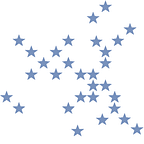Urban society and theater in Berlin: A metaphor for Europe
Kay Wuschek
Taking responsibility for the youngest generation
The program of the THEATER AN DER PARKAUE is primarily dedicated to an audience between four and 24. For the youngest, we represent a place of the first encounter with the special art form theater, with the special building theater and with everything theater is and can be: a place for encounters, for contention — a place which dares to discover the impossible. Later, this encounter often reminds of a type of initiation, never forgotten, sometimes admonishes about the image by Michelangelo where the finger of God comes close to the human finger which inspired Spielberg in “E.T.” as closeness to the foreign, to the extra-terrestrial, as step to the humane. Being a place of first encounters faces us with profound challenges combined with grand passions and a special responsibility especially for the youngest among us.
Theater for all — a mandate of society
Currently, approx. 75% of our audience are kindergarten and school classes from all types of schools: from elementary to high school, from the sixth form of college to in-service colleges. Simply put, that means: we offer theater for everyone. FOR EVERYONE. The TAP is a meeting point for groups from different contexts and origins where they act, react and interact. School groups from Marzahn encounter student groups from Charlottenburg encounter student groups from Neukölln encounter student groups from Pankow at a show. What happens during those encounters? What happens in the lobby, during the break, in the bathrooms, in the audience? The entire generation of Berlin’s urban society meets here, a future generation of Europeans. Room for encounters is created here, formats of exchange about what has been experienced and seen are developed — here, Berlin is palpable, Europe is palpable.
Transcending borders for a theater of the future
No performance is alike. If the audience feels that it is not needed, it drops out. Actresses and actors have a sense for that, they play on two levels, on stage AND with the theater hall. Staging methods change, perception techniques and perception practices are conceived in transition. We must become pioneers to discover the possible within the impossible, to dare to break new ground together with the audience. We hope that the growing audience at the THEATER AN DER PARKAUE will still go to the theater in 20 years or in 40 years, without being able to predict how the theater of the future will look. But we are searching for it, we want to take the chance to experiment. We work in various formats with contract and freelance artists, are active in European and international networks, cooperate with foreign genres, incessantly transcend borders. Interdisciplinary work, internal productions, scrutiny of traditional patterns of interpretation are an integral part of our daily quest. What interested and continues to interest us in cooperations across Europe and beyond — with Austria, Luxembourg, England, Finland, Russia, Kazakhstan or Turkey — is the perception of others of our work.
To get to know ourselves and others through art
The remaining 25% of our audience are families. But families don’t only mean one or two generations but all generations. And that poses a special challenge for art. Smart and alert direction understands how to build several stories or productions into one. A double theater comes into existence. The generations not only marvel at the events on stage but also marvel about the reaction of the other generation. A child wonders about the mother’s laugh at a moment where it discovered nothing funny and ponders the grand-father’s frown at a moment where it almost died of laughter. The child stands up, calls out to the theatrical events and with every act arises to its parents who will continue to talk about the visit to the theatre for a long time, with surprise and a different view of their child. Other children remain silent for days about what they saw and experienced to then not be able to stop talking about it from one minute to the next. And yet others will repeat whole parts of the text years later on the strangest occasions. So, there is no right and wrong in art and how to handle it — and that is where its freedom lies. In our imagination, we can transform anything into anything: a fork into a dog, a sentence into a playground. Because all we talk about in the theater is a human being. And we see all of us within that human being. In his desire, shame, rage, in his wishes, dreams, injuries and wounds. Playing with these emotions means getting to know us and the others from all sides. The not-to-be-named can suddenly be named, gains a face, an expression, a language. Venturing on this journey together with our audience is our daily work. An adventure.
We search, we experiment, we give a trial in our daily work. Perhaps we succeed in introducing previously abstract terms to the game and in viewing tomorrow differently. An approach to work which could do Europe some good. Welcome!
Kay Wuschek was born in Leipzig in 1963. He studied theatre science and cultural communication at the Humboldt University of Berlin. He first worked as a dramaturg at various theatres including the bat Studiotheater in Berlin, in Schwerin, Magdeburg, at the Thalia Theater Halle, in Bulgaria and at the Theater Aachen. Since 2005, he has directed the Theater an der Parkaue in Berlin-Lichtenberg, the largest and only state children’s and youth theatre in Germany, with three stages. In 2006, Kay Wuschek was selected as a member of the Berlin Council for the Arts and he is one of its two spokespersons. Since 2009, he has been a member of the Committee for Artistic Questions at the German Theatre and Orchestra Association. He has also been one of the two German vice-presidents of the International Theatre Institute (ITI) since 2009.
